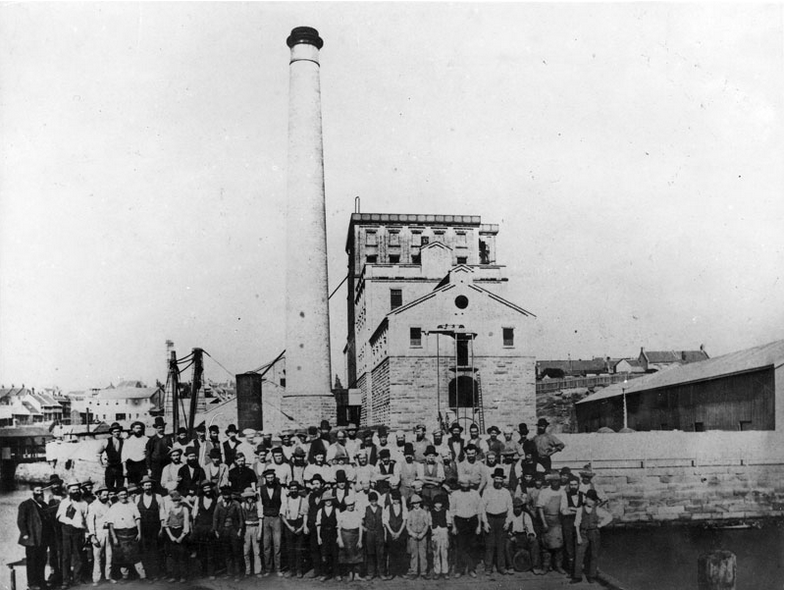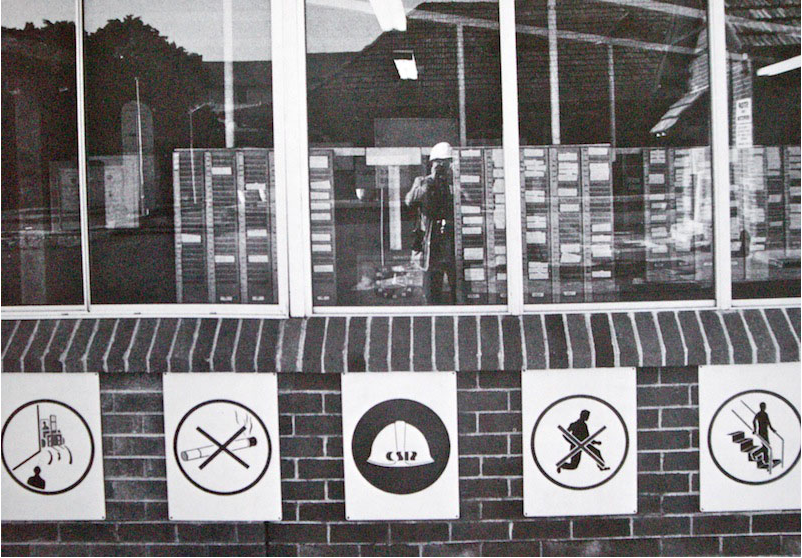Industry > CSR
CSR
From modest beginnings in the 1870s, the Colonial Sugar Refining Company (CSR) grew into an industrial giant with headquarters and refining capacity in Pyrmont, mines in Western Australia, sugar mills in Fiji, Queensland and New Zealand, chemicals in Western Sydney, and building materials everywhere. By the mid twentieth century it ranked second to BHP in its material and scientific resources, and in political influence.
CSR’s influence on Pyrmont was immense. Just as surely as sandstone quarries reshaped the landscape, CSR created and recreated Pyrmont society and industry. The company moved its refinery here from Canterbury in 1875, attracted by available land and deep water access. Its founder Edward Knox was a manager with many business interests; his son Edward William Knox travelled the world and studied sugar intensely before becoming General Manager in 1880. He recruited leading chemists and accountants, and steered CSR’s expansion and diversification. CSR had to become a world leader in the technologies of production, to compete with sugar produced by lower paid labour in the tropical world. The younger Knox also weathered political storms, transforming CSR from the Australian government’s enemy in a Royal Commission enquiry of 1912, into a valued ally during the 1914-1918 war and for many years afterwards.
As CSR attracted professional and manual workers, Pyrmont’s population grew through the nineteenth century, making much of Pyrmont a company precinct: but as the company expanded into sugar processing and distilling (from 1900) and building materials (from the 1940s), it demanded new roads and worksites. In 1906, for example, the whole site was reorganised, with a main entrance on Bowman Street. Inevitably, roads were re-routed and houses bought for demolition: workers and their families were squeezed out.
Pyrmont Refinery 1889
Professionals commuted to work cheerfully from cleaner suburbs (and therefore needed car parks), while poorer residents often had to be evicted. By 1957 the company controlled 31 acres (12.5 hectares) of land in Pyrmont. Facilities for employees – especially in the professions – were generous: other residents enjoyed no such benefits. The fine houses of managers and professional staff came to be surrounded by squalor until the 1980s when CSR closed its Pyrmont operations, and the State took responsibility for the large-scale urban renewal of the whole CSR industrial site as Jacksons Landing residential complex.
Related Items
Noel Butlin Archives Centre
CSR Pyrmont Refinery Centenary 1978 Photography Project





























